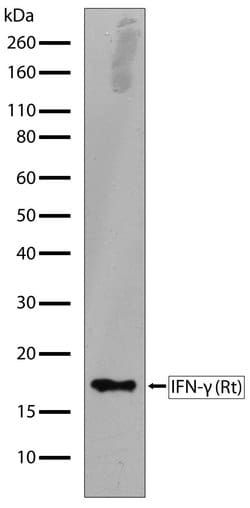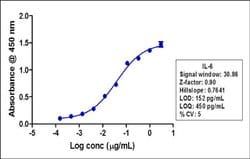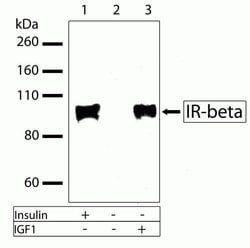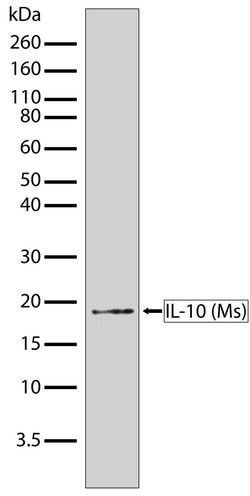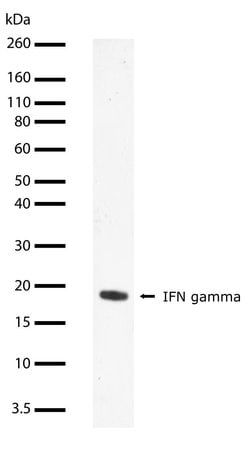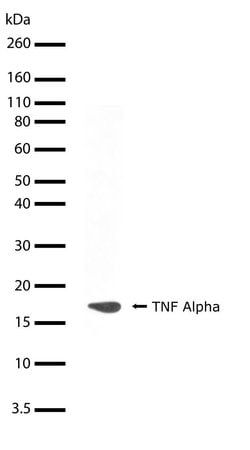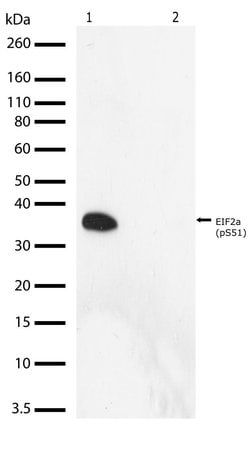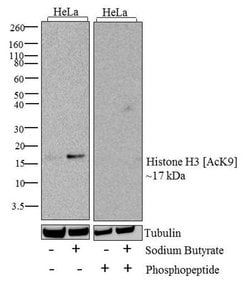IFN gamma Recombinant Polyclonal Antibody (11HCLC), Invitrogen™
Manufacturer: Thermo Scientific
Select a Size
| Pack Size | SKU | Availability | Price |
|---|---|---|---|
| Each of 1 | PI710287-Each-of-1 | In Stock | ₹ 43,298.50 |
PI710287 - Each of 1
In Stock
Quantity
1
Base Price: ₹ 43,298.50
GST (18%): ₹ 7,793.73
Total Price: ₹ 51,092.23
Antigen
IFN gamma
Classification
Recombinant Polyclonal
Concentration
0.5 mg/mL
Formulation
PBS with 0.09% sodium azide
Gene Accession No.
P01579
Gene Symbols
IFNG
Immunogen
Recombinant protein corresponding to amino acids 24–161 of human IFN-gamma
Quantity
100 μg
Primary or Secondary
Primary
Target Species
Human
Product Type
Antibody
Isotype
IgG
Applications
Flow Cytometry, Western Blot
Clone
11HCLC
Conjugate
Unconjugated
Gene
IFNG
Gene Alias
BoIFNG; cytokine; EGK_03901; gamma interferon; gamma interferon precursor; gamma-interferon; gamma-interferon precursor (AA -23 to 143); H-IFN-g; IFG; IFI; IFN gamma; IFN ?; Ifng; IFN-g; IFNG2; IFN-gamma; IFN-gamma precursor; IFN-y; IFN?; Immune interferon; interferon gamma; interferon gamma precursor; interferon gamma type 2; Interferon y; Interferon ?; interferon, gamma; interferon-gama; interferon-gamma; Interferon-gamma level; interferon-gamma precursor; Interferon?; M-IFN-g; R-IFN-g
Host Species
Rabbit
Purification Method
Protein A
Regulatory Status
RUO
Gene ID (Entrez)
3458
Content And Storage
Store at 4°C short term. For long term storage, store at -20°C, avoiding freeze/thaw cycles.
Form
Liquid
Related Products
Description
- This antibody is predicted to react with non-human primate, mouse and rat based on sequence homology
- Recombinant rabbit polyclonal antibodies are unique offerings from Thermo Fisher Scientific
- They are comprised of a selection of multiple different recombinant monoclonal antibodies, providing the best of both worlds - the sensitivity of polyclonal antibodies with the specificity of monoclonal antibodies - all delivered with the consistency only found in a recombinant antibody
- While functionally the same as a polyclonal antibody - recognizing multiple epitope sites on the target and producing higher detection sensitivity for low abundance targets - a recombinant rabbit polyclonal antibody has a known mixture of light and heavy chains
- The exact population can be produced in every lot, circumventing the biological variability typically associated with polyclonal antibody production
- IFN gamma (Interferon gamma, Type II interferon) is a macrophage activation factor, and immune interferon that is produced primarily by T-lymphocytes and natural killer cells in response to antigens, mitogens, Staphylococcus enterotoxin B, phytohemaglutanin and other cytokines
- IFN gamma is a dimeric protein consisting of two 146 amino acid subunits
- IFN gamma is a glycoprotein that exists, functionally, as a homodimer of approximately 45 kDa
- On SDS-PAGE, IFN gamma appears as a combination of 25, 20 and minor 15.5 kDa bands as a result of differential glycosylation
- The biological activity of the IFN gamma homodimer is highly species specific
- Human IFN gamma does not show cross-reactivity with mouse
- IFN gamma function includes the following: antiviral activity, tumor antiproliferative activity, induction of class I and II MHC, macrophage activation, and enhanced immunoglobulin secretion by B lymphocytes
- IFN gamma is involved in cytokine regulation and also acts synergistically with other cytokines
- Activation of IFN gamma takes place through binding of IFN gamma receptor I and II, and activating the JAK-STAT pathway
- IFN gamma does not show any homology with IFN alpha or IFN beta but human IFN gamma shows about 40% sequence homology with mouse IFN gamma
- IFN gamma is upregulated by IL2, FGF basic, EGF and downregulated by vitamin D3 or DMN
- IFN gamma gene mutations are associated with aplastic anemia.
